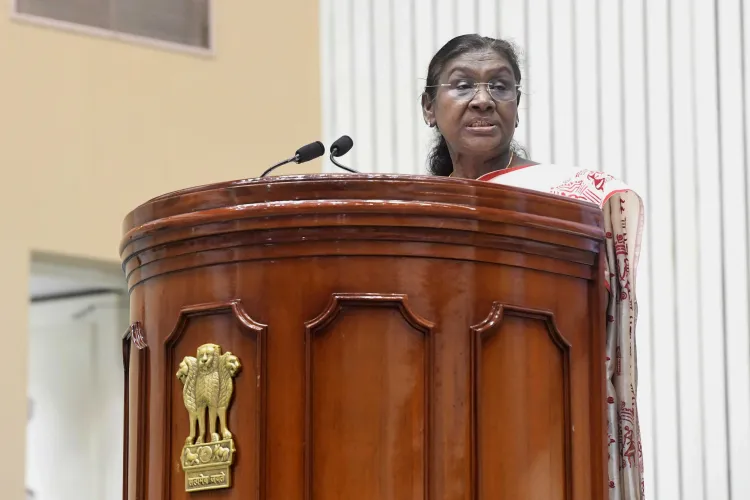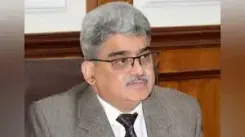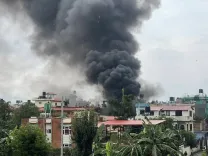Why Does President Murmu Emphasize Source Segregation for Waste Management?

Synopsis
Key Takeaways
- Source segregation is vital for effective waste management.
- President Murmu emphasized cultural practices promoting cleanliness.
- The Swachh Survekshan survey is key to assessing urban cleanliness.
- Adopting principles of circular economy is essential for sustainability.
- Government initiatives aim to tackle plastic waste effectively.
New Delhi, July 17 (NationPress) Citing Mahatma Gandhi’s adage ‘cleanliness is next to godliness’, President Droupadi Murmu emphasized the importance of source segregation as a critical aspect of the waste management process. During the Swachh Survekshan awards ceremony hosted by the Ministry of Housing and Urban Affairs, President Murmu noted the significant challenge of addressing plastic and electronic waste and the pollution they create.
“With dedicated efforts, we can substantially cut down on the nation's plastic emissions,” she remarked.
Highlighting cleanliness as a cornerstone of Indian heritage, she stated: “Our cultural and spiritual ethos has underscored cleanliness for centuries. The practice of maintaining cleanliness in our homes, places of worship, and surroundings has always been a vital part of our way of life.”
Mahatma Gandhi’s words, “Cleanliness is next to godliness,” were reiterated by her as a guiding principle.
She shared her beginnings in public service, which focused on cleanliness initiatives, recalling her daily visits to wards while serving as Vice President of the Notified Area Council.
The President praised the Swachh Survekshan, the world’s largest cleanliness survey, as an effective means to evaluate and motivate urban areas in their cleanliness endeavors.
She emphasized the importance of minimizing waste through the efficient use of resources and reusing materials, a practice deeply rooted in our culture. The principles of circular economy and the reduce-reuse-recycle framework reflect our ancient traditions.
“Consider the simple lifestyles of tribal communities; they utilize fewer resources and live in harmony with their environment, thereby avoiding waste. We can enhance modern systems of circularity by embracing these time-honored practices,” she said.
The President commended the School Level Assessment initiative, designed to instill cleanliness as a core value among students, predicting it would yield significant, lasting benefits.
President Murmu reiterated the challenges of managing plastic and electronic waste.
“With the right strategies, we can notably decrease the nation’s plastic emissions. Last year, the Central government prohibited certain single-use plastic items and established guidelines for Extended Producer Responsibility concerning plastic packaging. It is essential for all stakeholders—producers, brand owners, and importers—to adhere to these guidelines diligently,” she stated.
The President noted that cleanliness initiatives encompass economic, cultural, and geographical dimensions.
She expressed optimism that all citizens would engage wholeheartedly in the Swachh Bharat Mission. With resolute planning and commitment, she envisions that by 2047, India will be among the cleanest nations globally.





